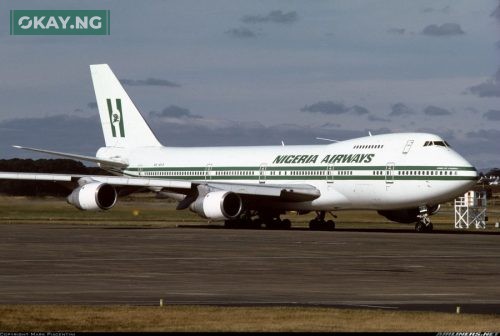The plight of former Nigerian Airways employees took center stage during the recent budget defense session, with lawmakers threatening to block the Aviation Ministry’s allocation until the government fulfills its promise to pay outstanding entitlements amounting to N36 billion. This dramatic standoff underscores the long-standing human cost of the airline’s 2003 collapse and the government’s apparent failure to address the plight of these dedicated public servants.
Established in 1958, Nigerian Airways once soared as the nation’s flagship carrier, connecting Nigeria to the world. However, years of mismanagement and mounting debt led to its tragic demise. While the airline ceased operations nearly two decades ago, the human cost continues to linger. Hundreds of employees, many now elderly and facing severe financial hardship, are still awaiting the payment of their hard-earned entitlements.
“Some have died, many are sick and dying. Yet, the government is refusing to pay them,” lamented Senator Jiya Ndalikali, highlighting the urgency of the situation. He passionately argued that these individuals, who dedicated their lives to serving the nation’s aviation sector, deserve justice and recognition.
The lawmakers’ frustration is palpable. Despite a 2018 presidential approval for a partial payment of N22 billion, a significant balance remains unpaid. This delay has had devastating consequences, with many former employees facing dire financial straits, struggling with illnesses, and tragically, some even succumbing to their ailments without receiving their rightful compensation.
Read Also:
Dana Air Disengages Employees Amid Ongoing Audit
2025 Budget: Senate Rejects Information Ministry’s Budget, Demands Increased Funding
While Minister of Aviation and Aerospace Development, Festus Kenyamo, acknowledged the outstanding liability and confirmed efforts to secure the payment through the Ministry of Finance, his assurances failed to appease the lawmakers. Senator Sahabi Ya’u poignantly questioned the finance minister’s inaction, emphasizing the urgent need for these individuals to receive their long-overdue entitlements. “Some of these people are yearning for what to eat. Some are no more,” he lamented, highlighting the human suffering caused by this protracted delay.
This impasse has now escalated into a critical juncture. The National Assembly Joint Committee on Aviation has issued a stern ultimatum: the Aviation Ministry’s budget will not be approved until concrete steps are taken to address the outstanding payments to the former Nigerian Airways employees.
This episode serves as a stark reminder of the government’s responsibility to its citizens, particularly those who have served the nation faithfully. It also underscores the importance of prioritizing the well-being of public servants and ensuring that their contributions are duly recognized and rewarded. The resolution of this crisis will not only provide much-needed relief to the suffering former employees but also serve as a crucial step towards restoring public trust and confidence in the government’s commitment to its citizens.









